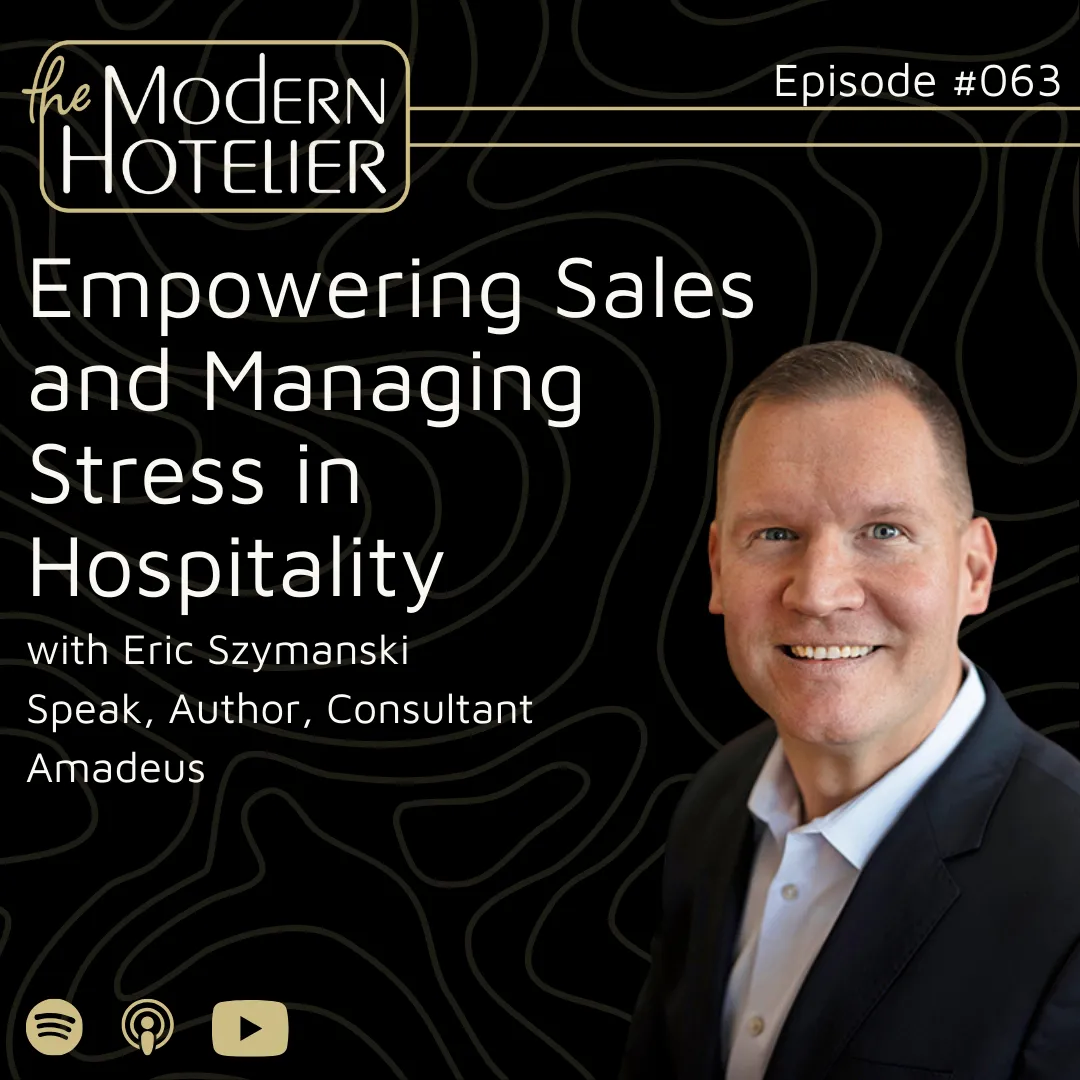Eric Szymanski is an award winning American hospitality industry professional with extensive sales & marketing leadership experience including Hilton, Marriott, Starwood and Disney. Eric has demonstrated success in leading high-performing sales teams through planning, implementing and monitoring actionable sales and marketing plans at hotels and resorts of all sizes, including city-center, convention district, airport and attractions areas. He has a proven track record of success at all levels through the achievement of both individual and team goals for several 1st tier, globally recognized brands. Throughout his career, Eric has created authentic, world-class experiences while volunteering at all levels in several meetings industry associations. As the co-author for Sell More Stress Less: 52 Tips to Become A Mindful Sales Professional Eric believes that sales does not have to stress people out, in fact when done authentically can inspire both the sales person and prospect.
In today's episode, David and Steve sit down with Eric Szymanski. They discuss the importance of data and business intelligence in driving successful commercial strategies for hotels. So, get ready to engage with a multifaceted leader who understands that the key to success in hospitality is as much about the human touch as it is about the data.
In this episode, you'll learn about:
- Why is business intelligence and data-driven strategies important for hotels?
- What is the significance of mindfulness and stress management in the hospitality industry?
- The connections between sales, marketing, and overall hotel success
- The Commercial Strategy and Industry Future
This episode is sponsored by Independent Lodging Congress: https://ilcongress.com/
Join the conversation on today's episode on The Modern Hotelier LinkedIn page.
The Modern Hotelier is produced, edited, and published by Make More Media: https://makemore.media/
Episode Links
Eric Szymanski
David Millili
Steve Carran
Steve on LinkedIn
The Modern Hotelier
Transcript
Automatic Transcription - please excuse any errors

